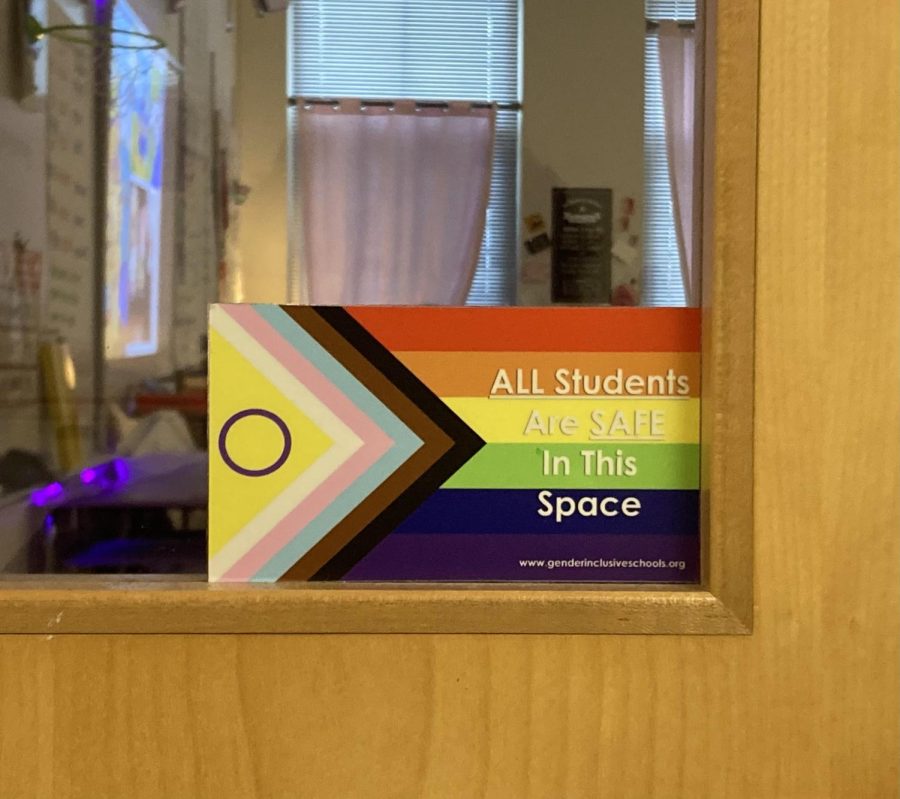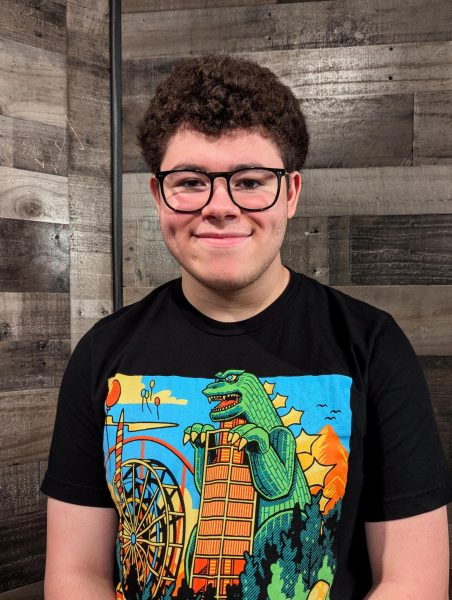How Can People Be Better LGBTQ+ Allies?
A picture of the pride flag sticker outside of Madame Quill’s room.
January 6, 2023
On December 13, 2022, President Biden signed the Respect for Marriage Act into law. This is one of multiple recent legal attempts, including another about businesses not being allowed to deny same-sex marriages, to protect LGBTQ+ individuals in the United States,. Despite these strides in protection, people are still being discriminated against in the community. Because of this, it’s important to know how to be a good ally.
One of the first things should go without saying: don’t use demeaning language or talk down to LGBTQ+ people. Using slurs, invalidating people, or treating someone like they’re “not normal” is extremely harmful. Looking at statistics from Case Western Reserve University, “Twenty percent of all respondents feared for their physical safety because of their sexual orientation or gender identity, and 51 percent concealed their sexual orientation or gender identity to avoid intimidation.” This is a worrying percentage, as coming out for some people can improve their mental health.
It’s also important to recognise that the LGBTQ+ community just wants to be treated like everyone else. One anonymous student phrases it perfectly by saying, “You don’t have to understand it. You just need to accept that it is there and move on with your life.”Another student, Sophomore Quinn Bannister, shares a similar sentiment: “You don’t always need to understand, but you should always be accepting.”Anyone in the community wants to live life like everyone else, and those who take pride in their identities in a way that isn’t harmful should be treated with respect.”
Another good idea is to get educated in the community. If someone doesn’t understand what something is, they can look up resources from people who are recognized and respected in that part of the community. Doing something as simple as researching the LGBTQ community can lessen the spread of misinformation about LGBTQ+ students. As previously mentioned, some individuals view LGBTQ+ people as not equal or even harmful to the general public. If you see anyone spreading misinformation like this, it’s important to correct it. Point out the issues and flaws so that harmful comments don’t get spread around.
Finally, if you have a friend that comes out to you, give them support. If someone is dealing with homophobia in their life, stand by them and try to help as best as possible. If they’re being bullied, do everything possible to prevent the bullying from continuing. Parker Pelletier, a sophomore at Oakdale High, states: “When a peer of the LGBTQIA+ community is being bullied or anything like that, stand up for them. Don’t just be there afterwards.”
As freshman Mary Kerr puts it; “Be nice.”






























